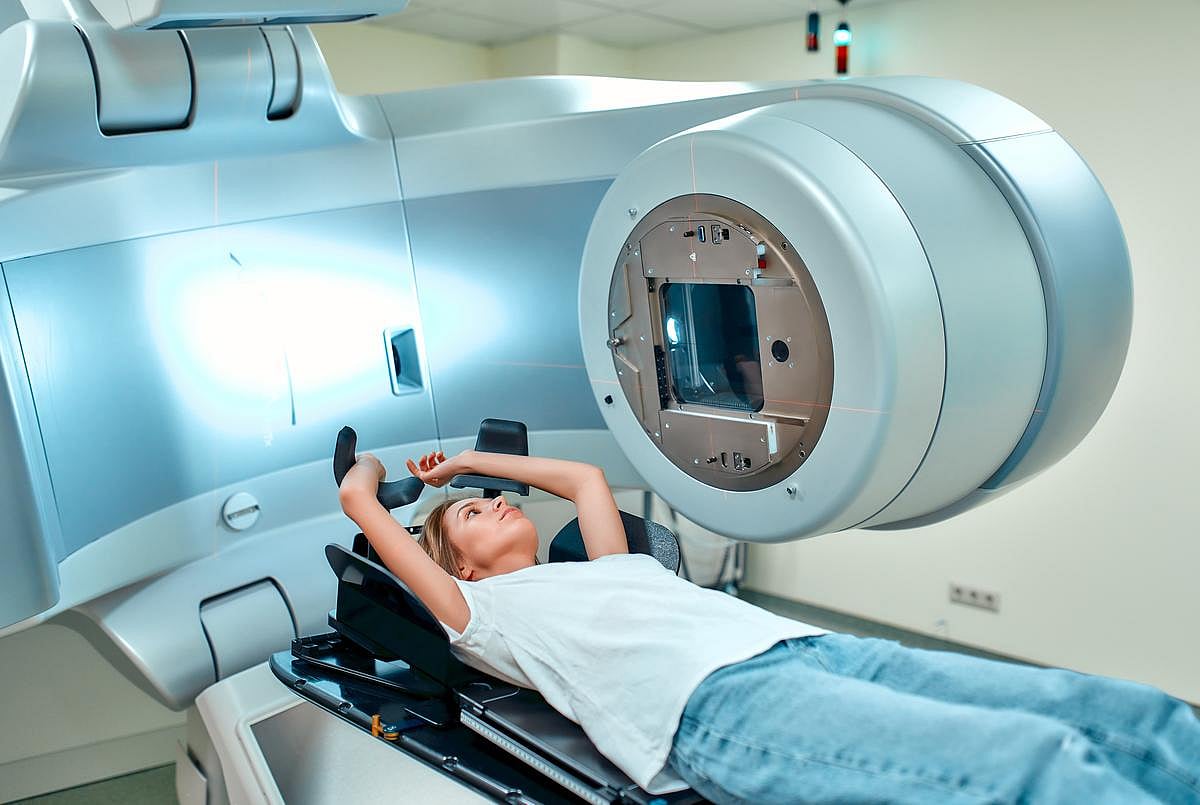Get Healthy!

- Dennis Thompson
- Posted July 7, 2025
Is Radiation Therapy For Cancer a Double-Edged Sword?
Radiation therapy to treat cancer might be a double-edged sword that increases the risk posed by other malignant tumors, a new study argues.
While radiation is often used alone or in combination with other treatments to control cancer, high doses of radiation can promote the growth of metastatic tumors that weren’t directly treated with radiotherapy, researchers report in the journal Nature.
This unexpected response happens because high-dose radiation treatment increases the targeted tumor’s production of a protein called amphiregulin, researchers believe.
High levels of amphiregulin weaken the immune system’s ability to fight cancer and boost cancer cells’ ability to protect themselves from attack, researchers said.
“These results open a whole new way of thinking about the systemic effects of radiotherapy,” senior researcher Dr. Ralph Weichselbaum, a professor of radiation and cellular oncology at the University of Chicago, said in a news release.
“Based on these findings, we are planning to conduct a clinical trial to further explore and validate the results,” Weichselbaum added.
As many as 60% of cancer patients receive radiation therapy as part of their treatment, researchers said in background notes.
Previous studies have shown that radiation can cause distant tumors to shrink, potentially by activating the immune system, researchers said.
However, many patients who receive radiation therapy for cancers with limited spread experienced the opposite effect, with distant tumors becoming more aggressive, researchers said.
“Our lab postulated that high doses of radiation might actually promote tumor growth at unirradiated sites under certain conditions, potentially accounting for some of these failures,” Weichselbaum said.
“Studies from the 1940s suggested radiation might cause tumor spread, but that never made sense to me because radiation is a highly effective anti-cancer agent within the tumor bed,” he said. “However, the communication between the irradiated site and distant metastatic sites is fascinating.”
To investigate this further, researchers analyzed biopsy samples from a clinical trial in which cancer patients were treated with high-dose focused radiation therapy. That trial found that metastatic tumors increased in size following the radiotherapy.
Genetic analysis of the biopsies revelated that tumors treated with radiation had significantly increased gene activity related to amphiregulin production, results show.
Animal testing revealed that while radiation therapy reduces the ability of cancer to spread to new places, it also promotes the growth of existing metastatic tumors.
But if amphiregulin was blocked using medication or gene therapy, these other tumors not directly targeted by radiation wound up shrinking along with the primary cancer, researchers found.
“Interestingly, the combination of radiation and amphiregulin blockade decreased both tumor size and the number of metastatic sites,” Weichselbaum said.
Analysis of blood samples from a second clinical trial involving lung cancer patients found that amphiregulin levels increased by radiation therapy tended to weaken the immune system by promoting the production of immune-suppressing blood cells.
Amphiregulin and radiation therapy also increased levels of CD47, a so-called “don’t-eat-me” protein on tumor cells that helps cancer evade the immune system, results show.
Blocking amphiregulin and CD47 resulted in highly effective cancer control among animals treated with radiation, researchers said.
Using these results, researchers intend to help develop a new type of personalized radiation therapy, particularly in patients whose cancers have spread to other parts of their bodies.
More Information
The National Cancer Institute has more on metastatic cancer.
SOURCES: University of Chicago, news release, June 30, 2025; Nature, May 14, 2025
